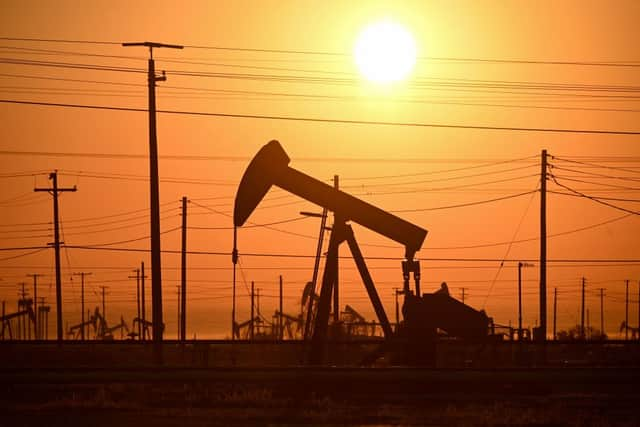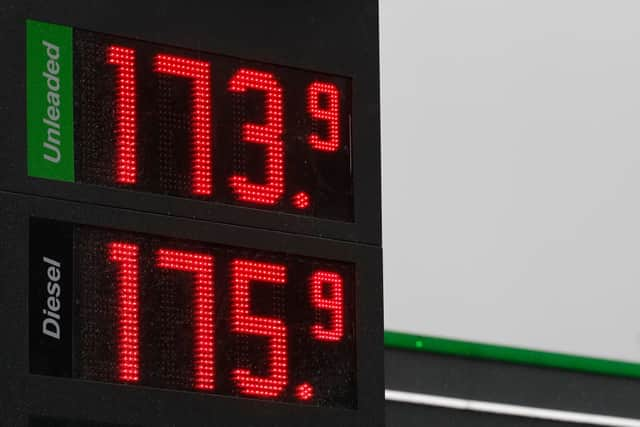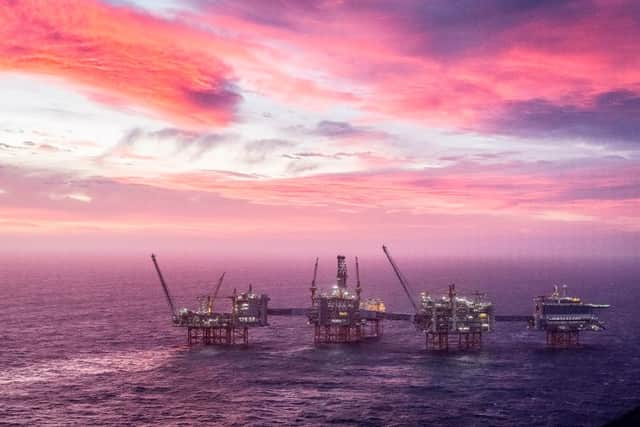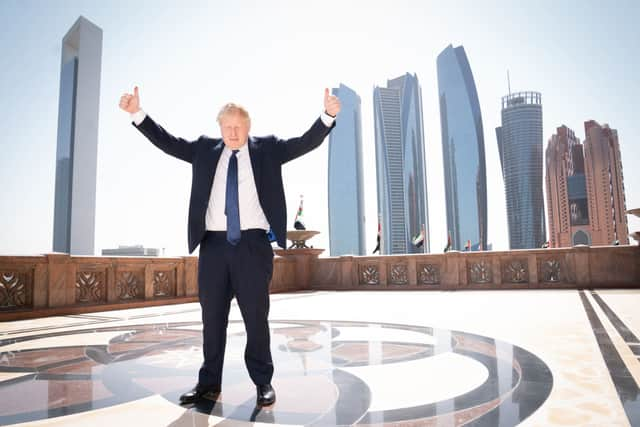Where does UK get its oil from? How much we import from Russia amid oil prices spike due to Russia-Ukraine war
This article contains affiliate links. We may earn a small commission on items purchased through this article, but that does not affect our editorial judgement.
and live on Freeview channel 276
The conflict resulting from Russia’s invasion of Ukraine has come at a massive human toll to both sides.
Thousands of soldiers and civilians have died, around four million people have been forced to flee the country, and dozens of towns and cities lie in ruins.
Advertisement
Hide AdAdvertisement
Hide AdBut the conflict has also come at a great economic cost - not only to Ukraine and Russia, which is the subject of international sanctions, but also to western countries that are battling cost of living crises, like the UK.
This is because Russia is a major supplier of fossil fuels like oil and gas, the prices of which have rocketed since the start of the so-called ‘special military operation’ in February.
So where exactly does the UK get its oil from, how much comes from Russia - and what impact has the war had on prices?
Here’s everything you need to know.
Why are oil prices at record highs?
As one of the biggest producers of oil and natural gas on the planet, what happens to Russia can have a major impact on global energy markets.
Advertisement
Hide AdAdvertisement
Hide AdIn terms of oil, the country’s production only sits behind the USA and Saudi Arabia and accounts for around 11% of the world’s total, according to US Government statistics.


Since Russia’s invasion of Ukraine, prices have been driven up to record highs because of sanctions and the threat of further penalties - all of which have threatened the continued flow of Russia’s oil exports.
The UK and US joined Canada in announcing Russian oil import bans on 8 March.
Announcing its ban, the UK said it would phase out Russian imports by the end of 2022 and will set up a taskforce to help firms find alternative suppliers.
Advertisement
Hide AdAdvertisement
Hide AdBut other major Western economies have not followed suit due to their reliance on the pariah state’s fuel.


The price of Brent crude oil - a specific type of oil used to make petrol that forms a benchmark for global prices - has soared since the invasion as a result of market speculation that Russian oil could be banned by more countries.
Russia’s suggestion that it could stop exporting oil to the West has added to upward price pressure.
Loading....
On 7 March, with rumours all Western countries could introduce Russian oil bans, prices spiked to $139 (£106) a barrel - the highest price recorded since before the financial crisis in 2008.
Brent was trading at just $61 a barrel in March 2021.
Advertisement
Hide AdAdvertisement
Hide AdHowever, prices have eased off since due to hopes other major oil producers will up production and as a result of new Covid-19 lockdowns in China, which look set to temporarily reduce demand from the world’s second biggest economy.
The news that the US is reportedly considering releasing 180 million barrels from its emergency reserves has also calmed markets.


Brent crude was trading at around $109.21 (£83) a barrel on Thursday (31 March).
How much the price of oil could rise if more countries adopt Russian oil sanctions or if Russia turns off the taps is unknown.
Advertisement
Hide AdAdvertisement
Hide AdRussia’s deputy-prime minister Alexander Novak said the price per barrel could hit $300 - a figure which may have been an attempt to spook the West.
Where does the UK source its oil from?
While around 25% of EU member states’ oil comes from Russia, the UK is much less dependent.
The UK produces around a million barrels a day from the North Sea and imports most of the rest of its needs from Norway.
Loading....
Other key importers are the US and the Organisation of the Petroleum Exporting Countries (OPEC), which includes Saudi Arabia.
Around 8% of the oil the UK imports comes from Russia.
Advertisement
Hide AdAdvertisement
Hide AdHowever, this does not mean that the country is insulated from the price shocks of Russia’s war.
UK companies are being forced to pay more for oil on global markets, which means prices at petrol pumps have soared dramatically.
But Rishi Sunak’s 5p fuel duty cut from the Spring Statement appears to have reduced prices somewhat.
Figures shared with the PA news agency by data firm Experian Catalist show the average price per litre on Tuesday (29 March) was £1.63.5, compared with £1.67.3 on 22 March.
Advertisement
Hide AdAdvertisement
Hide AdThe average price of diesel fell 2.2p per litre over the same period, from £179.7 to £1.77.5.


The Government says UK oil reserves are well above the 90 days-worth advised by the International Energy Agency (IEA), so it can weather any supply disruption.
Boris Johnson also met with UK offshore gas and oil business leaders on 14 March to discuss increasing the UK’s self-sufficiency.
Why did Boris Johnson travel to Saudi Arabia?
Even with more oil and gas production in the North Sea, the UK will need other countries to step in to guarantee its oil supplies.
Advertisement
Hide AdAdvertisement
Hide AdIn March, Boris Johnson traveled to Saudi Arabia - the world’s second largest individual producer - and the United Arab Emirates - the seventh biggest - in the hope of securing more oil.
Both nations are believed to be able to up their production and could help the West wean itself off Russian oil, lowering prices at petrol pumps in the process.
But the Prime Minister failed to secure any meaningful commitments from either country.
Mr Johnson instead claimed to have had a “very productive conversation” about getting OPEC to raise its production cap.
Advertisement
Hide AdAdvertisement
Hide AdHis trip was controversial because of Saudi Arabia’s human rights record.
The kingdom has largely been shunned by the West since US intelligence openly accused its leader - Crown Prince Mohammed bin Salman - of ordering the assassination of US-based journalist Jamal Khashoggi in 2018.
The Crown Prince has denied having any involvement.
Saudi Arabia also executed 81 people on 12 March - the largest mass-execution in the country in modern history.
The PM said he challenged the country’s human rights record during talks with Mr bin Salman.
Advertisement
Hide AdAdvertisement
Hide AdBut Labour leader Sir Keir Starmer said that “going cap in hand from dictator to dictator is not an energy strategy”.
A message from the editor:
Thank you for reading. NationalWorld is a new national news brand, produced by a team of journalists, editors, video producers and designers who live and work across the UK. Find out more about who’s who in the team, and our editorial values. We want to start a community among our readers, so please follow us on Facebook, Twitter and Instagram, and keep the conversation going. You can also sign up to our email newsletters and get a curated selection of our best reads to your inbox every day.
Comment Guidelines
National World encourages reader discussion on our stories. User feedback, insights and back-and-forth exchanges add a rich layer of context to reporting. Please review our Community Guidelines before commenting.
